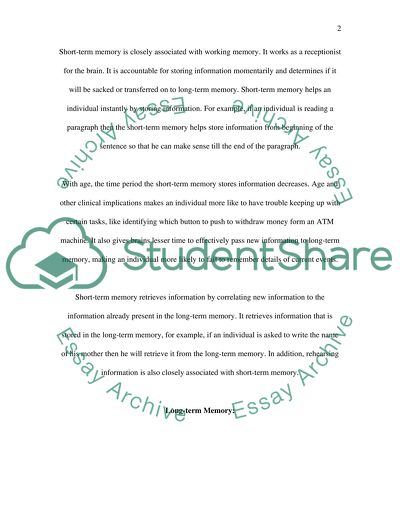Cite this document
(“The Concept of Memory Processing Essay Example | Topics and Well Written Essays - 1000 words”, n.d.)
Retrieved from https://studentshare.org/health-sciences-medicine/1418284-my-memory-process-paper
Retrieved from https://studentshare.org/health-sciences-medicine/1418284-my-memory-process-paper
(The Concept of Memory Processing Essay Example | Topics and Well Written Essays - 1000 Words)
https://studentshare.org/health-sciences-medicine/1418284-my-memory-process-paper.
https://studentshare.org/health-sciences-medicine/1418284-my-memory-process-paper.
“The Concept of Memory Processing Essay Example | Topics and Well Written Essays - 1000 Words”, n.d. https://studentshare.org/health-sciences-medicine/1418284-my-memory-process-paper.


